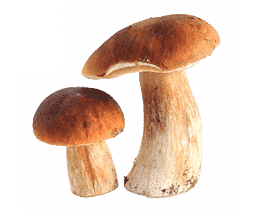
Effects of Psilocybin on Women

Psilocybin, found in some mushrooms, shows promise for mental health treatment. However, its effects on women can differ due to hormonal fluctuations, unique women’s health challenges, and how women metabolize substances.
This article will explore how psilocybin may influence women’s mental health, particularly its potential benefits in treating depression, anxiety, and other mood disorders.
Key Takeaways
Psilocybin shows promise in treating mental health disorders in women, including conditions like postpartum depression, PMDD, and treatment-resistant depression, offering hope where traditional medications often fall short.
Hormonal cycles may influence psilocybin’s effects on women, with anecdotal evidence suggesting that it may be more effective during certain phases of the menstrual cycle, though more research is needed.
Psilocybin therapy, currently in clinical trials, has the potential to be a breakthrough treatment for mental health issues, especially for women who have not responded to conventional therapies such as eating disorders, anxiety, and PTSD.
Understanding Psilocybin
Psilocybin is a naturally occurring psychedelic drugs compound found in certain mushrooms, commonly known as “magic mushrooms“. When consumed, it metabolizes into psilocin, which interacts with serotonin receptors in the brain, altering perception, mood, and cognition.
Historically used in spiritual and cultural practices, psilocybin is now being investigated for its potential therapeutic applications in addressing mental health conditions like depression, anxiety, and PTSD. Unlike many traditional treatments, psilocybin has demonstrated promising results in providing rapid and enduring effects after just a few sessions, suggesting a potentially transformative approach to mental healthcare.

Effects of Psilocybin on Women
Women's Mental Health Disorders
Women are more likely to experience mental health disorders like anxiety and depression than men. Conditions like postpartum depression, premenstrual dysphoric disorder (PMDD), and treatment-resistant depression often require more effective treatment options.
Standard medications, like selective serotonin reuptake inhibitors (SSRIs), sometimes don’t provide the relief needed. That’s where psilocybin therapy comes into the conversation.
Studies show that a single dose of psilocybin may bring long-lasting relief from depressive symptoms. It has piqued interest among researchers, especially for women suffering from mood disorders that traditional medications fail to address.
Hormonal Cycles
Women’s hormonal cycles, especially during their menstrual cycle, pregnancy, and postpartum period, can significantly affect their mental state. Anecdotal reports suggest that psilocybin’s effects might be amplified during certain phases of the menstrual cycle, potentially offering relief during particularly challenging times, such as PMDD.
However, more research is needed to understand how fluctuations in female hormones interact with psilocybin’s impact on serotonin receptors.
Eating Disorders
Women are disproportionately affected by eating disorders like anorexia nervosa and binge eating disorder. These conditions are notoriously difficult to treat with conventional approaches.
Psychedelic research is currently exploring how psilocybin-assisted therapy could offer a new pathway for women battling these issues. Early clinical trials suggest that psilocybin mushrooms may be a promising tool for addressing the underlying emotional factors contributing to eating disorders. It offers hope for women who have long battled with food-related substance use disorders.
Postpartum
For women experiencing postpartum depression, traditional treatments can be slow to take effect, and the side effects are often undesirable. The quick-acting nature of psilocybin-assisted treatment is drawing attention as a potential therapeutic tool.
Women grappling with anxiety and depression stemming from childbirth or parenting challenges might find solace in psilocybin’s therapeutic potential. Preliminary research suggests psilocybin may enhance cognitive functions and foster a greater sense of connection, potentially alleviating these distressing symptoms. While further investigation is necessary, the early findings offer hope for those seeking
Clinical Research on Psilocybin's Effects on Women

Scientists are still learning about how psilocybin affects women. While there are anecdotal reports of women benefiting from psilocybin-assisted psychotherapy, concrete clinical research is still catching up.
Trials are underway to explore its effectiveness in treating mood disorders, post-traumatic stress disorder (PTSD), and substance abuse. Current findings suggest that psilocybin’s effects on women, particularly in combination with psychotherapy, could be revolutionary for mental health treatments.
Generally
The future of psilocybin therapy for women holds exciting possibilities, but much remains to be explored. From its potential to treat anxiety and depression to its use in combatting eating disorders and postpartum depression, the psychedelic therapy landscape is expanding.
As clinical trials continue, it’s becoming clearer that psilocybin’s effects on women could offer a new way to treat mental illness that are often resistant to standard therapies. Curious about the effects of psilocybin for women?
Unlock its potential with Mind Mend. Learn more and contact us today!




